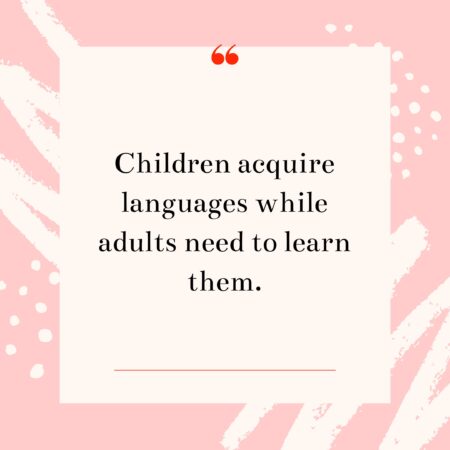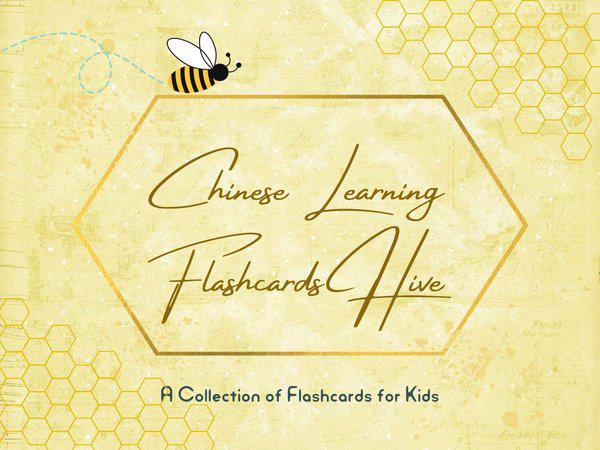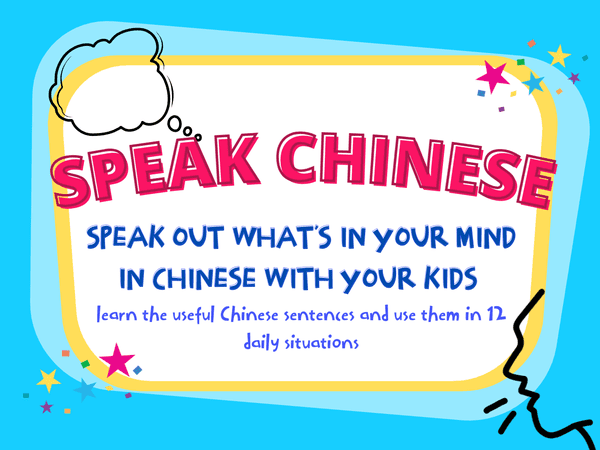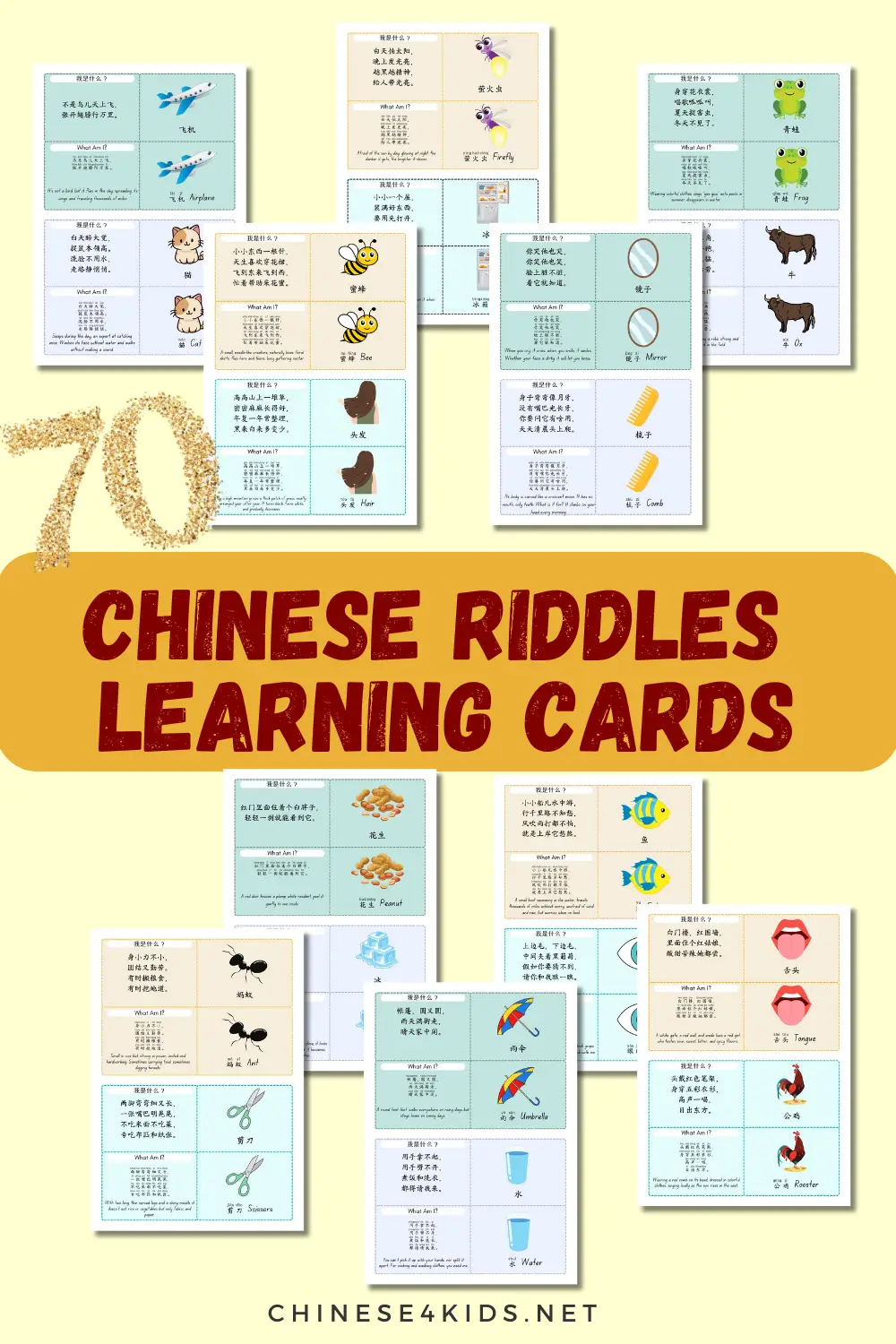
Home » Mandarin Chinese teaching resources » The Best Age for Children to Learn Mandarin Chinese
The Best Age for Children to Learn Mandarin Chinese

Children have the most potential learning languages. They remember everything they are told to and they repeat what they hear, even without fully understand what it means. Some experts say that children who start learning a language before the age of 5 are more likely to have native or near-native pronunciation of that language. Others say this age can extend up to preadolescence. Based on this theory, people believe the earlier a child is introduced to a new language, the better it is.
Children acquire languages while adults need to learn them

Children understand languages through context. They can easily switch between two or more languages intuitively. Children pay more attention to semantics and less attention to the grammar. And they don’t really care if the sentences are 100% correct. In such a way, they acquire the language rather than learning it.
Why start learning Chinese early?
As we already discussed, Chinese is a tonal language. Misuse of a wrong tone can cause misunderstanding. One of the biggest advantages children have when starting to learn Chinese early is that they can adapt to produce the correct pronunciation and tones easily.
The sounds in Chinese like zh, ch, and sh; or t and q; or en and eng, are difficult for adults, but seemingly easy for children. They can hear and pronounce correctly without much effort.
For an adult who is learning or has learned Chinese for a while, she or he may know how hard it is to differentiate certain sounds such as zh, ch, and sh — or t and q (such as 天 Tiān and 钱 Qián). The difference is small and subtle to the untrained ears. The tones add even more complexity and difficulty for an adult to comprehend or speak well. However, this is not the issue for children. They can learn and pronounce and hear correctly easily.
A study from the University of British Columbia shows that children are more adept at picking up different sounds, but this ability decreases after the age of 12. So starting to learn the Chinese language at a young age means that children are more likely to develop a native-like accent.
Learning Chinese early helps brain & cognition development
Learning Chinese utilizes areas of the brain that other languages do not. Chinese speakers use both left and right temporal lobes of the brain but English speakers use only the left. The difference is because Chinese speakers “use intonation to distinguish between completely different meanings of particular words.” according to a BBC News article, ‘Chinese “Takes More Brain Power”‘.
In addition to the tonal distinctions of spoken Chinese, the handwriting practice of the Chinese characters enhance the development of motor skills, visual identification, and therefore the brain power. “How Hand Writing Trains the Brain“, by Gwendolyn Bounds, published on Wall Street Journal states that “Using advanced tools such as magnetic resonance imaging, researchers are finding that writing by hand is more than just a way to communicate. The practice helps with learning letters and shapes, can improve idea composition and expression, and may aid fine motor-skill development.” based on a research from Indiana University. Different from English handwriting from left to right, Chinese characters handwriting is much more complex. The handwriting practice involves strokes in all directions, up, down, left and right. The whole sequential writing exercise to form a character activates the neural activity in “massive regions involved in thinking, language and working memory—the system for temporarily storing and managing information”. In one word, handwriting Chinese characters help develop brain and cognition capacities.
Learning Chinese at an early age has many advantages. The best age for children to learn Chinese is generally considered to be between 3 and 12 years old. At this age range, children’s brains are still developing, making it easier for them to pick up a new language. However, it’s never too late to start learning Chinese. And anyone can benefit from learning a new language at any age.
If you like this post, share it.
You May Find These Articles Useful
You May Also Be Interested:
- Chinese4kids Membership – a portal for busy Chinese teachers and parents
- Chinese learning flashcards Hive – a flashcards library that with regular additions of new quality Chinese learning flashcards
- Chinese learning worksheets collection – Also a part of Chinese4kids membership, this collection is for teachers and parents who want to have access to engaging worksheets and activity sheets created for kids learning Mandarin Chinese as an additional language
- Speak Chinese with Kids Course
- Chinese Vocabulary Made Easy Course
Recent Posts
Join Our Membership
Enroll to A Course
Buy An eBOOK
Our Posts














